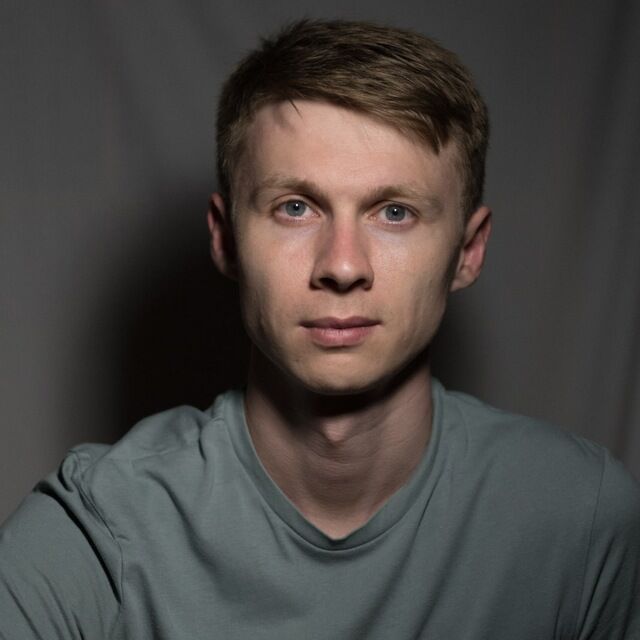If you have heard the phrase in the headline from poker friends more than once or have said it yourself more than once, then this material is for you. We tried to find out why the plans to play X hours for many players fail short from month to month. We asked the regulars about why they are unable to play the planned time and how they are trying to cope with this problem. And we learned from the mental coach about the possible reasons for such indiscipline.
Dmitry OOGWAY91 // Pull yourself together, rag!

Perhaps this is my most acute problem in all the time I have been playing poker. First, I will name the general and most obvious reasons.
1. Tilt – when everything falls apart, you freak out, hit the table, and all that. A lot of players close the tables when they are tilting, some immediately play more to make up for it. And many people understand they will not be able to show even their B-game. If you reach the state of tilt a couple of times a week, this will automatically reduce the monthly play by 20 percent.
2. Accumulated emotions, downswings. There are two opposing approaches here – some rightly get sick of poker during such periods and they play twice as less then they could, simply because it is difficult to expose yourself to the long-term pressure of these accumulated emotions. There is also an alternative view – to try to “overcome” the down streak by rolling out longer sessions, however, with this approach, the quality definitely suffers. I am for option number 1, hence the reduction in playtime.
3. Laziness. Basic laziness and lack of a mentor, boss, or outside control. If you look from the outside at a person who does not work anywhere and who does not have some kind of hobby every day, then how else can you explain that he did not bother to spend at least six hours out of the available sixteen for an occupation that provides him with food; for an occupation that has no prospects for 25 years and in which you need to run like a hamster in a wheel, trying to squeeze out all the juices in the shortest possible time, until everything is finally burnt out. Although everyone jokes about the standard “poker has two years left”, nevertheless, I have been in this swamp for 15 years and every couple of years the situation really gets worse and worse. Profitability in poker is not infinite, it may well reach the point that in another five years, earning a “pathetic” $2-3k will be considered a success.
Well, less popular reasons:
4. Lack of motivation, and loss of interest. Everything is clear here, with time you lose interest in everything. I myself recently started a blog in order to restore interest in the main occupation and get a dose of motivation, to make new acquaintances. This is just one way to deal with this problem. Another way is to wait for financial pressure. When you have nothing to pay for an apartment or you are expecting a child, and you do not have your own housing or even a sleeping bag for six months.
5. Weakness. This is not the same as laziness, but for a situation where you play already normal limits, and your earnings cover all the necessary expenses, and even accumulate something on top. And at the same time, you play 60 hours a month in a relaxed way. Well, the brain is an insidious thing, it will not strain the body once it's been through enough.
Is it worth it to set goals by the number of hands? Obviously, it is worth setting at least some minimum bar. In my opinion, the most important thing is to determine the optimal number of hours per day (not hands, but hours) that you can spend on the game and try to fulfill the "standard" every day. And it usually happens that a person sets a goal for himself for a month, and also has a goal for money made, but suddenly he loses in the first two weeks. Then, in an attempt to catch up, he tries to play 1.5x the norm in the remaining time. And if he also got into a losing streak, plus he already was playing more than he should, and additional pressure from the possibility of failure, nothing good can be expected.
Therefore, I repeat that it is much more important to decide and fulfill the daily norm, and then see how it will turn out at the end of the month.
Kirill ghoastim // Ecological excursions by limits
I'm an expert on how to play less than what you want! It seems to me that I came to this as a kind of defensive reaction due to problems with bankroll management. I tried to play exclusively A-sessions in the most optimal condition in order to reduce the risk of negative sessions. And at any sign of impending fatigue and lethargy, I happily took a break from the game. It is possible that due to this I really managed to maintain a win rate a little higher, but, as it seems now, I not only lost the amount of money I earned but also did not develop the habit of playing a lot without losing quality.
For the last month, I have been consciously working on this problem, forming a plan for myself by the hour for each week, and starting from it, the schedule for the day, taking into account my employment. ChatGPT helps in this – you list in free form everything that needs to be done in a day – how many hours to play, how long sessions, breaks, etc., and it gives you a ready-made schedule. It’s much easier for me to stick to a plan when I don’t ask myself the question “What should I do now?” Because the answer is already known. And as a pleasant side effect, it also relieves the emotional burden, because you understand that you are doing exactly what is important.
By the way, such an approach in terms of “stop asking yourself unnecessary questions” also helped me not to miss sports training. I just stopped asking myself questions like “Do I want to go to the gym? Do I have many other things to do? How do I feel? Are you tired?" I just end up going.
Aleqseuka Agrofuehrer
If I wanted to play 100 hours and failed this challenge, then I really didn't need it. When you want to do it, then often everything works out. Usually, I have a plan and I stick to it. I wake up in the morning, remember that today I have to play a lot and sit down at the tables.
The goal is pretty easy to come up with. You open a forum and write that you have such and such a plan. When this plan comes through, then for the forum readers, you will be either a “good guy” who completed the goal, or a “lazy bum”. This is where you choose who you want to be.
When something fails, you can imagine someone like Linus Loelinger who opens the solver and sees the same thing as you. Literally. The calculation is the same. Then what is the difference between you? The fact that Linus realized his equity in poker by 146%, like the nuts on the river in position. And you haven't yet.
Alexander GranMaster87 // Freedom and discipline
The problem with playing a certain amount is very relevant to me. I have a work plan for every week, I enter there not only the game but also the analysis of hands in the solver, it turns out to be about 41 hours of working time. However, I fulfilled this plan a number of times, and nothing helps – I set goals, and came up with all sorts of punishments and goodies, but no, something constantly interferes – a friend’s birthday or another unexpected event that cannot be missed, sometimes a breakdown, setting up a room, little attention to the child, an interesting discussion on the forum, sticking to procrastination, just household chores – something constantly appears out of nowhere!

It seems that there is motivation to fulfill the plan, and the generally difficult financial situation is conducive to this, but you can’t just say “leave me alone, I have a job”, because someone will definitely be offended, something will get better, you will lose balance in life, burnout will come (maybe this is self-deception, but the brain stubbornly shuts down to not strain). I honestly do not know how to deal with this, but I think that in general, this is not such a big problem in life, rather artificial, and eliminating it will lead to breakdowns in other areas.
Of course, goals are one of the tools to combat the lack of time. In those rare moments when there are no distractions and it was possible to fulfill the plan (usually it closed on the last day with a record 10 hours of playing), you feel tired and satisfied from achieving the goal, regardless of the result. Then I had a good day off with goodies (tasty (harmful) snacks, beer, hookah, watching a movie with my wife, etc.). However, in these cases, the next week will inevitably turn into a failure.
Michael FIRE91103 // What to expect when you expect?
The reasons for not playing the planned amount I have are as follows:
1. Lack of energy to focus on tasks and implementing them. Hence the apathy and fatigue throughout the day. To avoid this, you need to get enough sleep. For me, this means going to bed at the same time, preferably before midnight. In the months when I played 140-160 hours, I first sought to fulfill this goal.
2. Lack of concentration. Gaining experience may not be a priority, and attention will switch to easier tasks. To avoid this, I have a method – to divide the time for entertainment and time for the tables. We need clear time frames for work and rest. Both within a month and within a single day. There are separate mandatory days off during the week; there is a time when I can relax while playing. I constantly use timers, they provide clearer cut-offs for some hands from others. I would also add thoughts about the next day before bed. When I imagine what I will be doing tomorrow, it makes it easier to start the next day and all of its content.
3. No plan. I make plans for the month/week/day. This helps maintain focus. No plan – no focus, time passes chaotically and in mental discord. It is important for me to have a common vision of the time frame.
4. Poor nutrition, a lot of junk food. I have a clear and easy meal plan in my arsenal. If I don’t know what to eat, I suffer from this choice. It takes time and space in my head. In the months when I need to focus, I basically have a monotonous diet, close to dietary. During periods when food becomes entertainment, life also becomes unpredictable and difficult, it takes energy. Alcohol can also be blamed here – booze puts an end to all points in general.
5. Lack of physical activity. Gym workouts increase my motivation and self-control. Without training, I feel weakness and lack of concentration, and there is only one desire – to lie down or be distracted. Plus, without physical exertion, sleep suffers, and this is the most important component of your success in this.
6. Sometimes there are periods when no matter what plans I make for the tables and the length of time, everything is still uninteresting and there is no desire to do it. Then I just let go of the situation and let myself and my attention wander. Sometimes it ends in a day or two, sometimes in a week, rarely in a month. During such periods, the distance is much less, but this is normal, I do not feel remorse about this. There are a lot of interesting things happening around me, so sometimes I slow down and just look around.
Brdz1 // youtube.com/A-Game

In addition to unforeseen circumstances, the time length is also hindered by an insufficient amount of play. You don’t have to do it one table at a time – sometimes you play many tables at once, and sometimes you just look at the lobby for hours.
My mood helps me win in the long run – when I eat right and get up/go to bed at the same time. If you have the habit, then it will not be difficult to win back the session and work on the game. But if you leave that mode, for one reason or another, problems begin, and you need to return everything back, including the game form.
Igor "Lets_crush" Pysarenko // Modest top reg
The reason for the problems in the long run, in my opinion, is one – at this period of time you simply do not need it, you are comfortable in your games, and you are not ready to get out of it yet.
The environment can help with this. In this regard, I was lucky all my career – I was next to players stronger than me, I saw that they played more and wanted to catch up with them as soon as possible. It is also important to organize a comfortable routine, everyone has already written about halls and meditations a thousand times, or find a blog that you like.
A pen and a notebook also help me: if you open the notes from two years ago, you see progress, and this motivates me to move on.

In my blog, I reset goals for the year, then I break them down for each month. Before going to bed, I write how much I managed to do in a day, and at the end of the month, I check. Well, I just write from time to time how I feel, why exactly, what can be done better, etc.
Arkhip "ButovoEPT" Apstrikov // ROAD TO THE DREAM
Well, long-term goals have never been my forte, as long as I can remember, I played an average of 100-120 hours a month. Sometimes, of course, the situation forced me to play more, but it never ended with anything good.
100 hours a month is, in my opinion, just the lower threshold, only 25 hours of playing per week. This is a small limit, if a person does not play even that much, then perhaps he simply does not like this game and he does not need it at all. Another reason may be the lack of goals – if a person does not understand why he needs to play a certain number of hours a month, he will simply go with the flow.
It helps me stick to a plan with a clear goal. I know and understand why I am doing this, where I am going and just doing my job. For me, the overall goal is a huge bankroll to play zoom200+.
We wrote about how to set goals competently at the beginning of the year.
Only very long streaks interfere with sticking to plans. During such periods, the game falls apart, and motivation decreases, but I understand that sooner or later the bad round of variance will end, so I continue to play anyway.
Setting a goal for the number of hours/tournaments is a good idea. These are the things that you can influence and, accordingly, the probability of completing the task is very high. It will be a mistake to set goals for the amount of profit, because in 90% of cases, our expectations will not coincide with reality.
Ruben "Dark neofit"
Players fail to achieve their goals for a number of reasons:
1. Lack of motivation. For example, there will not be a surge of real motivation when a goal is set only to set it, and not to achieve specific results. This can happen when a person sets a goal simply because it is the "norm" or "trend", but does not feel its important and does not have a need to achieve it.
2. Too ambitious of a goal. If the goal does not line up with the real capabilities of a person – for example, a player sets a goal to play 60,000 hands, although he barely has played 30,000. I think you need to be realistic and increase the number gradually.
3. No plan. Players who don't plan their time often fail to hit the target. It is necessary to have a clear understanding of how much of the game you need to play every day or week in order to complete the goal, and at the same time do not forget about rest, and leave time for hobbies and family. It is also useful to develop a plan for potential forced play in order to keep up with the schedule.
4. Procrastination. This is perhaps the main reason for the failure of plans.
The desire for quick gratification alone can block out a productive task. In addition, the task itself can cause discomfort, due to the feeling of frustration (unmet needs). If the player is dissatisfied with the upcoming game or the results of the game, then the psyche is affected in such a way that it will try to displace the source of stress with the help of psychological defense mechanisms.
What needs of players may not be closed when playing poker:
1. The need for a sense of activity. It can be lost due to the feeling that the player, for example, set a goal for the number of hands, won back half, and feels that there is no point in playing more because he has already won enough. Or the player does not see the point because he played badly, with gross errors, so he feels that there is no point in chasing quantity.
2. There is no resource – physical and mental fatigue, lack of sleep, all this affects and can be frustrating.
3. The need for security can be lost when a player tries to take profits. That is, sitting down to play and winning a few stacks, the player fears that he will squander his profits and he will be in a bad mood. In general, trying to save, not to acquire, is a very common scenario. It is treated by awareness of one's fears and the destruction of illusions regarding the comfort zone.
4. The need for a task to be done perfectly. This is due to the paralysis of perfectionism. A player, for example, might think like this: “Now I’m not ready enough for the game, I won’t play the session perfectly, I won’t be able to show A-game.” As a result, he postpones the session until later, and then he gets carried away by, say, YouTube videos.
It is necessary to look for the reasons for frustration, to conduct a dialogue with yourself, and strive either to close the needs or to convince yourself that it will be possible to deal with them later, but for now, it is necessary to proceed to the current task.

